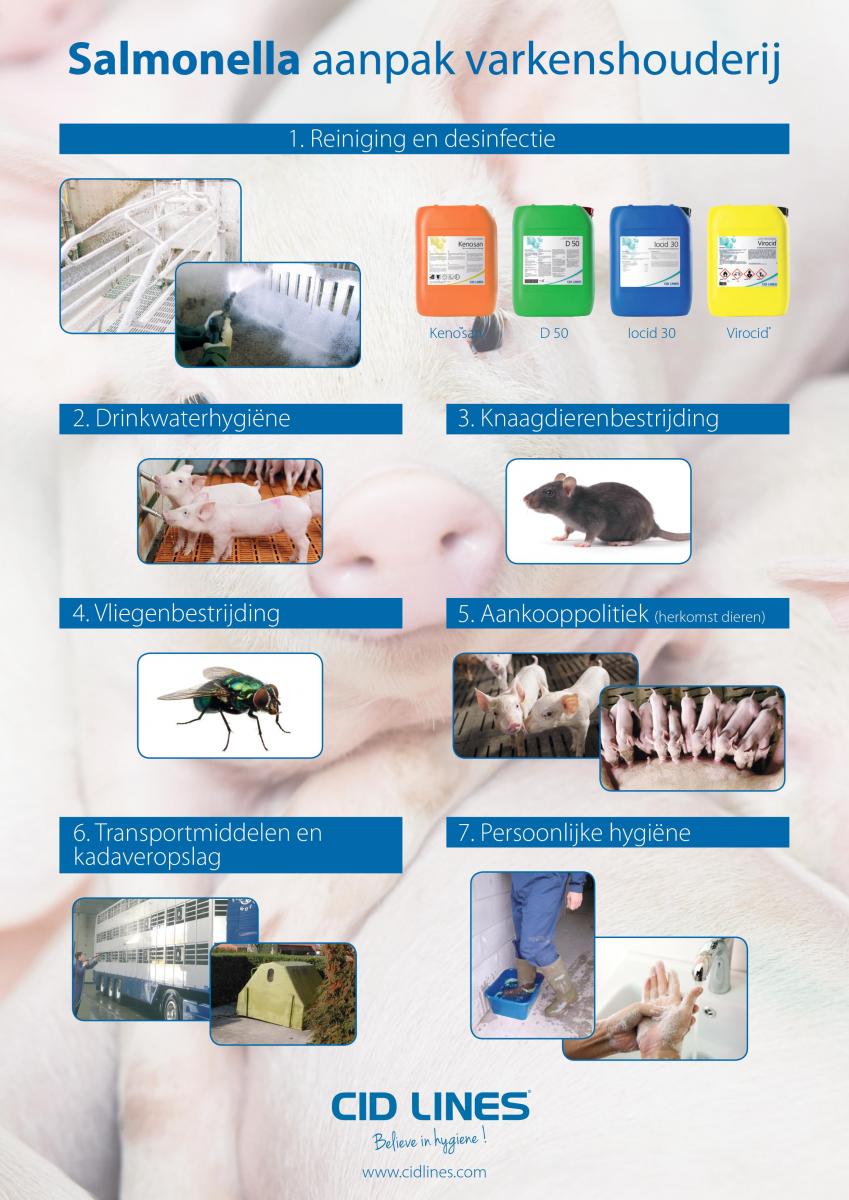Er zijn meer dan 2500 Salmonella serovars geregistreerd, maar de Europese Commisie merkte kudde prevalentie op bij de 5 meest gerapporteerde serovars, meer bepaald S. Enteritidis (10,9 procent), S. typhimurium (0,5 procent), S. infantis (2,2 procent), S. mbandake (0,4 procent), S. hadar (1,1 procent) en andere (6,6 procent) (EFSA Journal, 2011).
De prevalentie van deze serovars is landspecifiek. Vanwege het gevaar voor de volksgezondheid legde de Europese Unie in 2003 een wetgeving op (EC) NO. 2160/2003 ter controle van Salmonella en andere specifieke voedseloverdragende agents.
Voor de varkensindustrie betekent dit dat er een hygiëne programma werd opgesteld en regels werden opgericht om de introductie van Salmonella op boerderijen te vermijden. Het Salmonella programma, dat ontwikkeld werd door CID LINES, bedekt zowel de verticale als horizontale overdraagbare routes en biedt duidelijke richtlijnen met hygiëne oplossingen voor ieder controlepunt op de boerderij.

